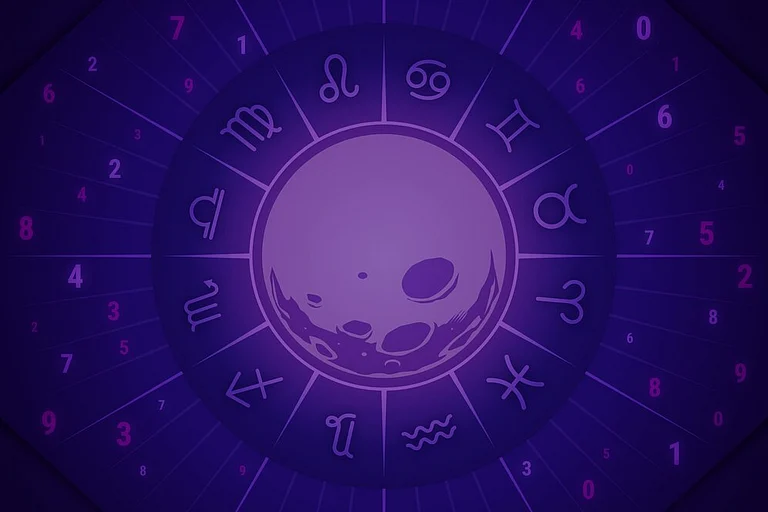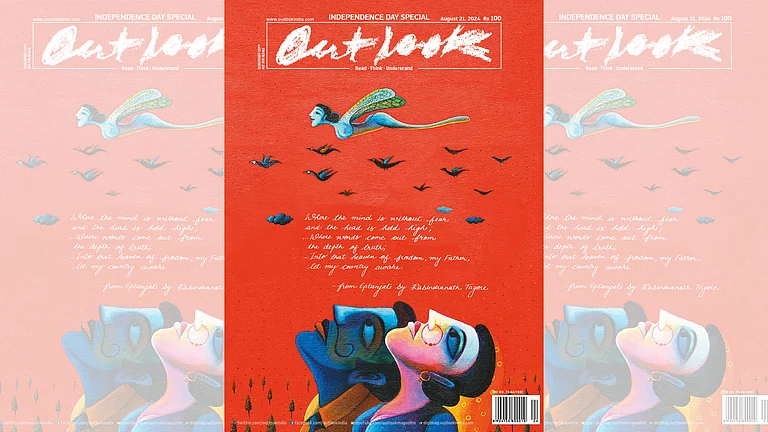WHEN the News Corp chairman Rupert Murdoch, unarguably the most puissant citizen of the global village, flew in on his private jet for a mystery pow-wow with brand-new Prime Minister H.D. Deve Gowda and left hours later just as unobtrusively as he had arrived, he wasn't just testing the postelection political waters. He was doing precisely what he has always been a past master at. Setting the pace.
Besides hyper-activating the rumour mills, Murdoch's upfront request for uplinking rights in India has sent a buzz of excitement through the satellite TV industry. Says the India CEO of a 24-hour American channel: "The visit is bound to have far-reaching repercussions. The next few weeks will be crucial as the Government weighs the pros and cons of granting uplinking rights to private broadcasters."
The secrecy that veiled Murdoch's latest sojourn was rather surprising. The last time he was here—in February 1994—his whereabouts were public knowledge as he went about meeting the high and mighty, including then prime minister P.V. Nara simha Rao and a host of Indian media barons, during an eight-day stay in the country. But Murdoch's intentions, as always, seem to be as crystal-clear as they are ambitious: with precisely a year to go for Hong Kong's merger with China—the formal transfer takes place in June 1997 —quick thinking and even quicker action are the need of the hour. It's time for STARTV, the News Corp-controlled Asian satellite network, to move out of Hong Kong and set up headquarters in India. Permanently. Hence the meeting with Deve Gowda.
On his previous visit, Murdoch had categorically told journalists during an encounter at New Delhi's Press Club that "our activities in this country, such as they are and such as they are planned to be, have absolutely nothing to do with China, Hong Kong, Britain or any other nation". However, his sudden meeting with Deve Gowda to seek uplinking rights and permission to set up a major production and technical back-up facility at Tumkur, a small town 40 km from Bangalore, is a clear measure of the urgency that has crept into STAR TV's moves to beef up its presence in India.
The United Front Government's decision on Murdoch's request will, of course, be awaited with great expectancy. Not only by private satellite broadcasters who are currently beaming into India via Hong Kong, Singapore and sundry other countries, but also by top-flight media professionals who can only benefit if India becomes a key centre on the global satellite television map."STAR TV will emerge as a major employer of Indian talent once the network's proposed local language channels get off the ground," Murdoch had declared in February 1994. "I am not interested in merely transmitting signals from abroad. I want to play a key role in the expansion of the indigenous television industry."
So the search is on for suitable men to pick up STAR TV's reins in India, which is expected to receive Murdoch's 24-hour European news channel, Sky News, besides at least two Hindi and one Tamil channels, in the not-too-distant future. Among the people who have reportedly been sounded out for the CEO's post are the former Doordarshan director-general (DG) R. Basuand All India Radio deputy DG M.P. Lele. When contacted, Basu, however, dismissed the reports as "totally speculative". Says the bureaucrat who took Doordarshan to heights that the national broadcaster had never known before: "I don't know Murdoch. In fact, I wasn't even aware that he was in town. The last time I met him was nearly three years ago when he had called on the I&B minister."
Executive editor of The Times of India, Gautam Adhikari, whose name, too, is being mentioned as another probable senior editorial recruitment in India, is no less surprised at the speculations that have been fuelled by Murdoch's visit. "The report is entirely fabricated.... I haven't received any offer. I've never met Murdoch. I know a couple of people who work with him and I meet them occasionally. That's about all."However, sources in media circles insist that STAR TV India's managing director Gene Swinstead, one of two top executives who accompanied Murdoch on his trip to Delhi, has been in touch with Adhikari.
Much more crucial to Murdoch, of course, will be the Government's decision on uplinking rights. On their part, the 63-year-old Murdoch, STAR TV's Hong Kong-based CEO Gary Davey and Swinstead have done their homework quite meticulously. They know, for instance, that Ram Vilas Paswan—who as an MP headed the parliamentary committee which has recommended that airwaves should be thrown open to private parties, provided they adhere to the laws of the land and are answerable to the autonomous broadcasting council that is to be set up under provisions of the upcoming Broadcasting Bill—is now a senior member of Deve Gowda's Cabinet and a man who wields considerable clout.
The choice of Tumkur as the base of STAR TV's production and uplinking activities, too, seems to be a master stroke. The town is in Deve Gowda's home state, Karnataka, and the Prime Minister cannot but be favourably inclined to the proposal, especially because it entails an estimated investment of Rs 5,000 crore over the next few years.
The STAR trek across the Indian skies is all set to gather unprecedented momentum. The Murdoch visit, however brief, was just the renewed kickstart that the juggernaut needed.


























